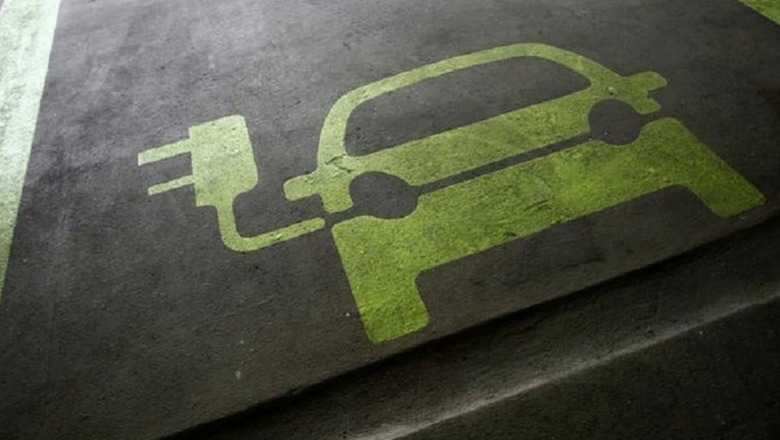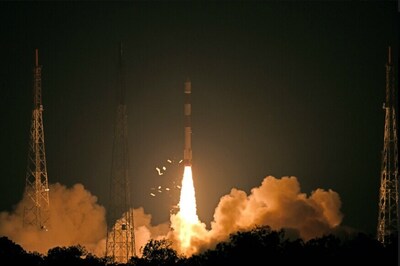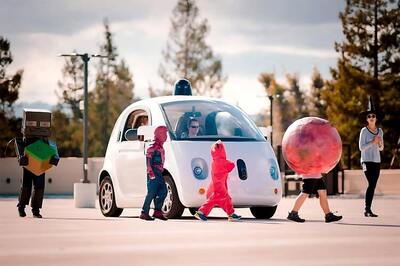
views
Delhi Ban on Entry of Petrol and Diesel Cars: In order to improve the air quality in the national capital, the Delhi government has announced a ban on the entry of petrol and diesel cars and instead, will only allow CNG and electric cars to enter from November 27 to December 3. While the list of CNG -equipped cars can be long, the list of electric cars that can enter Delhi is quite small comprising of the handful of electric cars that are sold for private use in India. So, here’s a refresher on electric cars that India has available right now.
Tata Tigor EV
We are starting our list with the homegrown manufacturer, Tata Motors, who has recently become the only carmaker in India to offer two separate electric vehicles under Rs 15 Lakh with over 300 km all-electric range all thanks to the Tigor EV, that has recently been launched at a starting price of Rs 11.99 Lakh. There are three variants to choose from and the top-spec model is priced at Rs 12.99, making it the most affordable EV with a 306 km electric range.
The new Tigor now gets the Ziptron technology with a 26.4 kWh battery that promises a range of a little over 300 km on a single charge. The car comes with two driving modes ie Drive and Sports, the latter of which gives you complete power. Speaking of which, the car gets a Permanent Magnet Synchronous Motor at the front that delivers 75PS of power and 170Nm of torque. The Tigor EV can be charged with a 15A socket in about 8.5 hours. With a fast charger, the battery can be replenished to 80 per cent in about 60 minutes.
Tata Nexon EV
Next in the line is the Nexon EV, which comes as the most affordable electric SUV in India, being almost Rs 6 to 7 lakh cheaper than its closest rival, the MG ZS EV. In addition to this, the numbers on the car are nothing short of impressive as well. The Tata Nexon EV gets a 30.2 kWh battery that promises a range of 312 km on a single charge. It gets a Permanent Magnet Synchronous Motor at the front that delivers 129PS of power and 245Nm of torque.
The Nexon EV can be charged with a 15A socket in bout 8.5 hours. With a Fast charger, the battery can be replenished to 80 per cent in about 60 minutes. The prices for the Nexon EV starts at Rs 13.99 Lakh and goes upto Rs 16.85 Lakh. You also get the Ziptron technology, iRA connected suite with 30+ features like remote diagnostic, range, charging status among others.
MG ZS EV
The ZS EV was MG’s second product in India and came at a time when the brand was still making its name, which suggests that it had to work a wee bit extra to stand out. And we are happy to report that it did not disappoint us. The ZS EV is a good looking car and closely resembles its petrol twin sold abroad. The one motor on the ZS EV takes its juice from a 44.5kWh, liquid-cooled lithium-ion battery. MG promises a maximum range of 340km which is a little bit higher than the Nexon EV. The motor puts out 143bhp and 353Nm of torque which gets it from a standstill to a 100kmph in just 8.5 seconds.
The ZS EV also comes with three driving modes ie Eco, Normal and Sport, that alters the throttle response and the power available to you. In terms of charging, MG has installed 50kW DC Fast chargers at its dealerships. With it, the car can be charged up to 80 per cent in 50 minutes. Additionally, the company will also fit a 7.4kW AC home charger that will take around 6 to 8 hours to be fully charged.
Hyundai Kona Electric
The Kona Electric was the first-ever proper electric SUV to enter the Indian market. Electrifying one of the most popular badges around the world itself says something about Hyundai’s intentions behind the car. Now, the Kona might be more expensive than the monikers we discussed till now, but the premium price also brings along some premium aspects on the table.
Starting with the battery, the Kona Electric gets a 39.2-kilowatt-hour lithium-ion polymer battery which, according to Hyundai, offers an ARAI claimed a range of 452 km. This clearly surpasses the range we have seen up until now. You get four driving modes including Eco+, Eco, Comfort and Sport.
Audi e-tron GT/ RS e-tron GT
Audi, the German luxury car manufacturer, has added two fully electric four-door coupes – the Audi e-tron GT and the Audi RS e-tron GT to its range of electric vehicles in India. While the Audi e-tron GT is priced at INR 1,79,90,000, Audi RS e-tron GT is priced INR 2,04,99,000. Both the GT models join the existing Audi e-tron and e-tron Sportback models in India, making Audi the only brand to offer such wide range of electric cars in India.
The Audi e-tron GT and the Audi RS e-tron GT are the first fully electric sports cars from Audi. The Audi e-tron GT has a power of 390 kW and accelerates from 0 – 100 km/h in a superfast 4.1 seconds, while the 475 kW RS e-tron GT achieves the same feat in mere 3.3 seconds. The Audi RS e-tron GT and Audi e-tron GT feature 83.7/93.4kWh Lithium-ion battery providing the range of 401 – 481 km for Audi RS e-tron GT and 388 – 500 km for Audi e-tron GT (WLTP combined).
Mercedes-Benz EQC
The Mercedes-Benz EQC is the first all-electric luxury SUV to launch in India and has a price tag that starts a little over Rs 1 crore. It gets a big 85kWH battery pack and a single-speed gearbox sending power to the wheels and you also get the Mercedes 4MATIC AWD system. Mercedes claims an NEDC range of 450km. This means the EQC is capable of delivering 400bhp and a whopping 760Nm of torque.
It gets four driving modes namely Eco, Comfort, Sport, and Individual and also comes with four levels of regeneration. With the paddle shifters behind the steering wheel, you can toggle between five settings D Auto, D, D+, D-, and D-. As for the charging process, it takes 10 hours to charge the car using the 7.5 kW charger that Mercedes is providing with the car. If you charge it using the standard 15 A socket, then the car takes 21 hours to charge.
Jaguar I-Pace
The Jaguar i-Pace is the prettiest electric SUV in the list but that is not a surprise since it’s a Jaguar. The pricing of the i-Pace is almost similar as the Mercedes-Benz EQC with prices starting at Rs 1.06 crore. Jaguar claims a range of 470km in a single charge from the 90 kWh, Lithium-Ion battery placed under the floor. The car gets two synchronous motors at each axle combining the output to 394bhp and 696Nm of torque.
Jaguar claims that the battery can be charged up to 100 per cent in 14 hours with a 7.4kW AC charger, in 4 hours with a 25kW DC charger and in just 2 hours with a 50kW DC charger. In addition, Jaguar Land Rover customers will be able to charge their Jaguar I-PACE using Tata Power’s EZ Charge Network with over 200 charging points across the country.
Also Watch:
Audi e-tron/e-tron Sportback
Audi launched the highly anticipated e-Tron electric SUV series in India after much delay due to coronavirus induced lockdowns. Audi launched 3 electric SUVs in India – the Audi e-tron 50 priced at Rs 99,99,000, Audi e-tron 55 priced at Rs 1,16,15,000 and Audi e-tron Sportback 55 priced at Rs 1,17,66,000. Range wise, the e-tron 55 and e-tron 55 Sportback feature a bigger 95kWh lithium-ion battery that enables a 359-484km range (WLTP) while the e-tron 50 features a 71kWh lithium-ion battery with 264-379km range (WLTP).
The Audi e-Tron has two Electric motors at the front and rear to produce a combined power of 300kW on the Audi e-tron 55 and Audi e-tron Sportback 55, and 230kW on the Audi e-tron 50. The power pushes e-Tron 55 and e-tron 55 Sportback from 0 to 100 kmph in 5.7 seconds, while the e-tron 50 gets a 6.8 second 0 to 100 kmph time. Interestingly, the cars get Charging flaps uniquely positioned on both sides to enable flexibility in parking.
Read all the Latest Auto News here




















Comments
0 comment